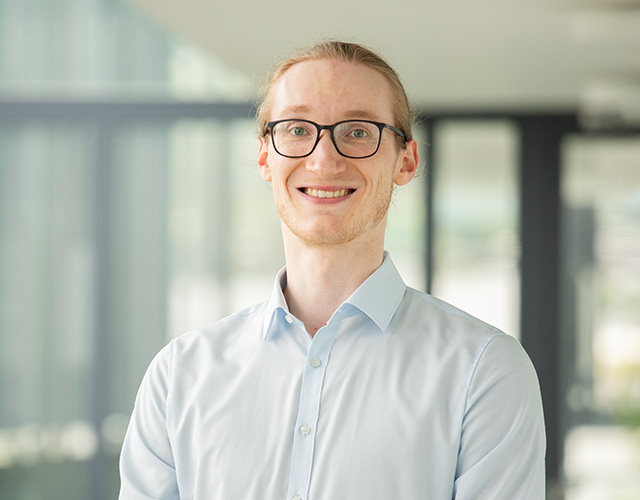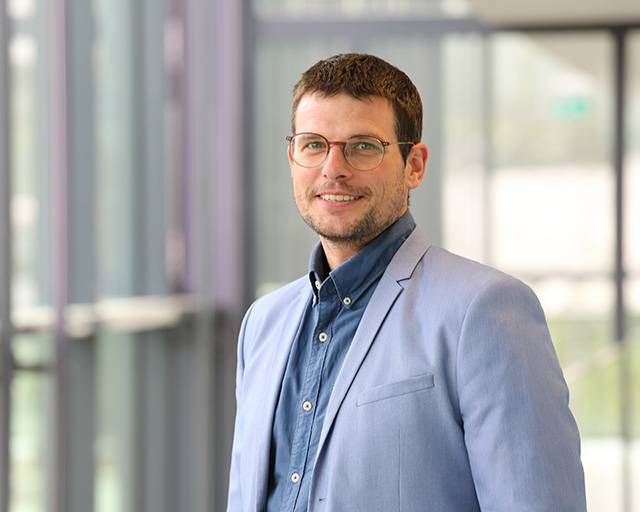
Seminar: Safety Assurance for Artificial Intelligence

AI safety - with safety engineering to safe AI (The seminar is held in German)
The seminar for becoming a Certified Data Scientist Specialized in Assuring Safety addresses the safety assurance of Artificial Intelligence (AI) in safety-critical areas.
We provide an overview of the state of the art for assuring AI safety. At the interface between safety and Artificial Intelligence, we address relevant standards and standardization initiatives. We create awareness for the challenges caused by using AI in safety-critical solutions by highlighting typical problems from this area of conflicting requirements.
In the seminar, participants learn about possible strategies for assuring the safety of Artificial Intelligence. Together, will test a selection of approaches to address concrete challenges and derive customized safety concepts.
The training, which is conducted online, includes a large proportion of exercises and interaction in order to convey the content in a practice-oriented manner and to enable transfer to everyday professional life.
Information and details about the seminar
Goals
Target Group
- Reviewing organizations, specialists and managers, project managers, quality management
- Experts such as safety engineers and data scientists
Basic knowledge of statistics and data analytics is expected. Initial experience with Machine Learning methods is an advantage. Prior knowledge in the field of safety engineering is not required.
Your Benefits
Safety Assurance for Artificial Intelligence at a glance:
- You will get to know the hazard and innovation potential of AI applications in safety-critical environments
- You will get an overview of the fundamentals of safety engineering
- You will learn about the relevant AI fundamentals from the safety perspective
- You will be able to classify the benefits and the binding nature of safety and AI standards
- You will get to know a selection of possible strategies and measures for safe AI
- You will be able to apply assurance cases as a possible argumentation basis for AI-related safety cases by way of example
Program
The seminar Safety Assurance for Artificial Intelligence is held in German. Accompanying documents are available in English.
Day 1: Motivation and Fundamentals
- Motivation for AI in safety-critical systems
- Fundamentals of safety engineering
- AI basics with a focus on Safety
Day 2: Standards and Measures for AI Safety
- Relevant standards and norms
- Safety measures for AI
- Measures during specification
- Measures during construction
Day 3: Measures for Safe AI (cont.)
- Measures during testing
- Measures during analysis
- Measures in the data lifecycle
Day 4: Safety Argumentation
- Fundamentals of assurance cases
- Assurance cases for AI components
- Holistic consideration of the core contents, opportunity for final questions
Day 5: Certified exam in the morning
Experts

Dr.-Ing. Rasmus Adler studied Applied Computer Science and has been employed at Fraunhofer IESE since 2006. In his PhD, he developed fail-operational solutions for active safety systems such as ESP. After that, he dedicated himself to model-based engineering of autonomous systems as a project manager and safety expert. He coordinated the development of solutions to measure at runtime the risk of planned/possible autonomous system behavior with respect to the current situation and to initiate risk-minimizing actions. In his current position as Program Manager Autonomous Systems, he is particularly dedicated to the risk management of networked cyber-physical systems. To maximize the benefit of individual systems, but also the overall benefit of systems of systems, he relies on cooperative risk management at runtime that is partly based on Artificial Intelligence. Since current safety standards do not support this innovative risk management, he is involved in standardization committees and participates in the development of normative requirements for autonomous networked cyber-physical systems.

Dr. Michael Kläs has been working in applied research and advising companies in the areas of software quality and data analytics ever since completing his studies in Computer Science. In the past decade, he has been responsible in numerous industry and research projects for the establishment of KPI systems, the evaluation of new technologies, and the development of predictive analyses. In his dissertation, he addressed the prediction of software faults using expert knowledge. Currently, his focus is on the area of potential analysis for data-driven innovation and on the analysis of data quality and uncertainty in Big Data and AI systems. As the author of numerous professional publications, he is also actively engaged as a university lecturer and as an expert in standardization (DIN/VDE).

Dr. Adam Trendowicz is a senior engineer in the “Data Science” department at the Fraunhofer Institute for Experimental Software Engineering IESE in Kaiserslautern, Germany. After receiving his PhD in the area of software project effort and risk estimation models from the University of Kaiserslautern (Germany), he continues to work in data science and data-driven business innovation.
Dr. Trendowicz has more than 20 years of experience in the analysis of software projects and products in various industries. He has led various activities in the areas of software measurement, prediction, and improvement in software companies of different sizes and in different domains (including Germany, Japan, and India). In this context, he has developed and empirically validated prediction models for software cost and software quality.
In his current work, Dr. Trendowicz focuses on data quality and preparation in the context of Machine Learning and on lean deployment of data-driven innovations based on Machine Learning and Artificial Intelligence solutions.
Dr. Trendowicz has co-created the “Data Scientist” continuing education and certification program offered by the Fraunhofer Big Data and Artificial Intelligence Alliance. Furthermore, he has held several tutorials on business-IT alignment, data preparation and analysis, software quality measurement, and cost estimation. Finally, he has co-authored several books and numerous international journal and conference publications.

Pascal Gerber studied Computer Science at the Technical University of Kaiserslautern, Germany. In his theses as well as during his work as a student research assistant at Fraunhofer IESE, he focused on topics such as reinforcement learning and quality influence models for evaluating uncertainties in the decisions of data-driven models.
After graduating, he started working in the “Safety Engineering” department of Fraunhofer IESE in 2021 and acquired fundamental competencies in safety engineering. Since 2023, he has been working in the “Data Science” department and is currently focusing on quality influence models.

Marc Wellstein received his Master’s degree in computer science (M.Sc.) from TU Kaiserslautern, Germany, in July 2021. Since then, he is full-time researcher in the “Safety Engineering” department at the Fraunhofer Institute for Experimental Software Engineering (IESE) in Kaiserslautern. His main research topic is dynamic risk management, complementing established design time assurance methods with runtime assurance aspects, and assurable, human-like driving behaviors in simulation-based validation for autonomous driving systems. Generally, his focus is mainly on the automotive domain.

Dr.-Ing. Patrick Wolf studied applied computer science at the Technical University of Kaiserslautern with a focus on embedded systems and robotics. His master's thesis dealt with the assessment of sensor data quality and the effect of uncertainties in perception systems of autonomous vehicles. From 2016 to 2023, he was a research assistant at the Chair of Robotic Systems at RPTU Kaiserslautern and developed safe and reliable autonomy solutions for commercial vehicles in off-road environments. Dr. Wolf completed his doctorate “Cognitive Processing in Behavior-Based Perception of Autonomous Off-Road Vehicles” with distinction in 2022.
Since 2023, Dr. Wolf has been working as a “Senior Safety Engineer” in the department for “Safety Engineering” at Fraunhofer IESE and develops new solutions in the field of safe autonomous driving. In addition to his research and industry activities, he is a lecturer in the Fraunhofer certificate program “Certified Data Scientist Specialized in Assuring Safety”. Since the winter semester 2023, he has been a lecturer in the Department of Computer Science at RPTU and teaches the lecture “Offroad Robotics” at the Kaiserslautern campus.

Daniel Hillen received his Master's degree in Computer Science from the Technical University in Kaiserslautern, Germany. Since 2020, he has been working full-time as a research associate and safety engineer at the Fraunhofer Institute for Experimental Software Engineering (IESE). His research focuses on the development of methods for safeguarding autonomous vehicles. His focus is on modeling the vehicle environment and model-based safety engineering.

Patricia Kelbert has been working at Fraunhofer IESE since 2017 and in the Data Science department as a data scientist since 2020. She studied bioinformatics at the “Université de Strasbourg” in France, where she completed her Master's degree in 2005. She has long been intensively involved in programming, software engineering, databases and data usage control across different disciplines (biodiversity, genetics, pharma & health, agriculture).

Anna Maria Vollmer holds a Master's degree in Computer Science from the Technical University of Kaiserslautern and has been working at Fraunhofer IESE in the Data Science department since 2017. In her current roles as Senior Data Engineer and Manager for Business & Transfer, she combines technical expertise with strategic thinking. Having been responsible for a variety of projects, she has developed a deep understanding of complex problems and effective solution strategies. In addition, she brings experience in quality assessment and works on data-driven innovations for industrial clients.
Registration to the seminar
The next training dates are expected to be in Q2 2026. Flexible dates can be arranged on request.
Please contact the training team for more information.
General Terms and Conditions (AGB)
General Terms and Conditions for participation in seminars and events of Fraunhofer IESE:
Data Protection
We do, of course, treat your data confidentially and do not pass it on to third parties. You can object to the processing of your data at any time.
Costs and Invoicing
The participation fee is tax-free according to Sec 4 No. 22a of the German Value Added Tax Act (UStG).
It includes accompanying documents, the examination fee, and catering during on-site events. We do, of course, treat your data confidentially and do not pass it on to third parties. You can object to the processing of your data at any time.
Following the training, our accounting department will send an official invoice to the address provided by you.
Certification
The certificate for the seminar Safety Assurance for Artificial Intelligence is issued by the Fraunhofer Personnel Certification Authority.
Admission requirements are a university degree or equivalent qualifications proven by an individual attestation.